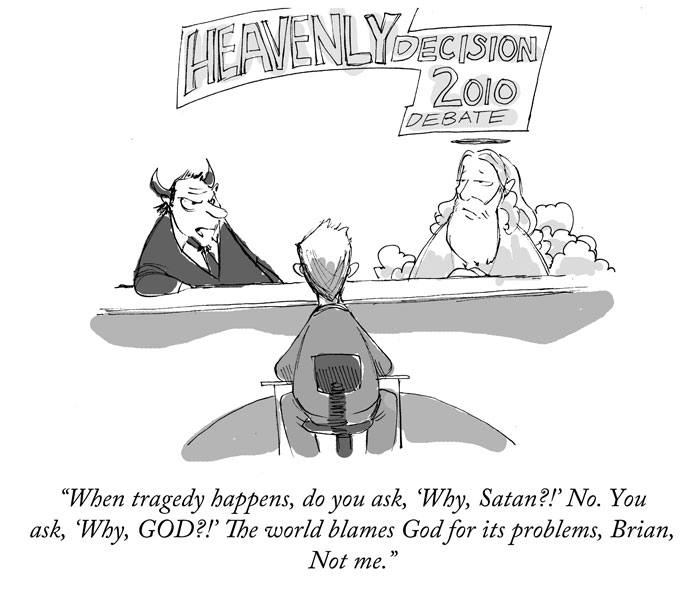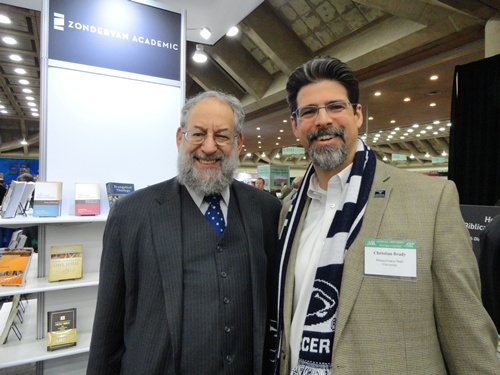This is an appeal to my colleagues: Does anyone know the legality of making copies of articles one has published, either in a volume or a journal, available online? My assumption is that we are not allowed to do that, but given the medium of the blog and the limited access of some colleagues to resources I wondered if we might not be able to post our own articles on our own sites. So…does anyone know the law on this? (US, UK, internationally?)
This came up in the podcast we did among fellow bibliobloggers at SBL. We were discussing Kevin Wilson’s BibleWiki project at BlueCord.org and several of us have done dozens (well, a lot anyway) of little articles for Bible dictionaries and wondered how “original” we needed to be with our 3 sentence entry on “Zuzim” to make it different from an earlier published article in, say, Eerdman’s Bible Dictionary. 🙂
So, legal or otherwise, what opinions do you all have about such an endeavor?




6 thoughts on “Making Articles Available Online”
For substantial essays or entries, my thought would be to check with the editorial staff of the journal or book where the piece first appeared. My experience has been that they are usually generous about this. For other types of writings and entries, things seem more murky to me. I’ll be interested to hear what others think! —S.
I remember reviewing a collection of essays by various authors many years ago and noting that one of them had simply republished half a chapter of an earlier book he published, without indication of the source. I wondered about the morality of this procedure (is there something like self-plagiarism?), but did not think I was a competent judge in such a matter and simply wrote something like “a slightly reworked version”. I am also highly curious about the legal aspects of this.
As for making materials available online, I sometimes put preliminary versions of my articles on my website, but take hem down once they have appeared. In general, I think one should not republish on paper or electronically without asking the permission of the company or editor who put money and effort in it.
But what I really dislike is the outright refusal of many publishers out of fear of such copyright infringement to provide their authors with PDF-files of their articles, so that you have to scan them before you can e-mail ugly offprints. Cannot something be done about that?
Jan-Wim Wesselius, Kampen, The Netherlands
Thank you both. JW, there is indeed self-plagiarism and I had to bring a student up on just those charges once. Ninety percent of his paper was from a paper he did for another class of mine two years earlier. That is not what I had in mind, however. Mostly I was envisioning simply posting a pdf of an article with full reference. Which is not any different that what many have access to now when they request/download an article from JSTOR or similar online and library loan services. In those cases where I have had to cover material that I have already published on I will begin with a footnote directing readers to my earlier publication.
Chris,
SBL articles can be distributed by author immediately after publication, but kudos need to be given to SBL and the citation needs to be clear.
Sage journals have a 1-year embargo after which the author can distribute on the net
Brill journals always need to be asked permission. Same with BBR.
Not sure about Cambridge journals, I suspect a similar policy to Sage.
I have communicated with these publishers because deinde is planning on launching a digital repository for authors to deposit articles that will make them openly available and searchable to all. (we discussed this a while back ago around the biblioblogosphere)
We hope to launch in the next few months. Please don’t blog about this as we are still working out bugs in the system. You can keep it in your comments here though. When it goes live, you’ll hear about it.
Danny
Thanks Danny! I will look forward with great anticipation to your project (and sorry to say it slipped my mind! I do recall the conversation). Do let us know when it is available.
Since the Blue Cord Bible Dictionary was mentioned, I wanted to focus on that part of the post.
It seems to be that for short entries in the dictionary, it will of course be difficult not to repeat information that has been written before. After all, if there are only two sentences worth of knowledge that is known about a particular topic, those two sentences are going to show up in every Bible dictionary, even if they are reworded. After all, there are only so many ways to say “PN1 is mentioned in Gen.6 as the father of PN2. His name means X. No other information is know about him.”
The way I am getting around this is by not writing short articles for the Bible Dictionary on topics that I have submitted for other publications, such as the New Interpreter’s Dictionary of the Bible. Longer articles are easier to write differently. This is not something I am requiring of contributors, but just my own practice.